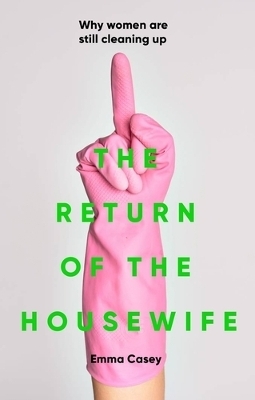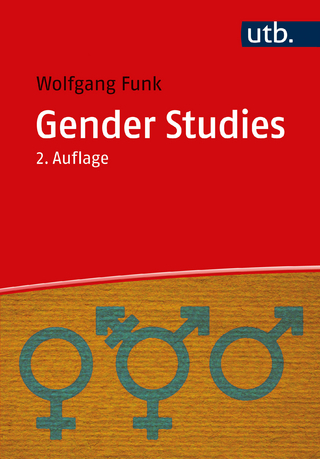
The Return of the Housewife
Why Women are Still Cleaning Up
Seiten
2025
Manchester University Press (Verlag)
978-1-5261-7097-2 (ISBN)
Manchester University Press (Verlag)
978-1-5261-7097-2 (ISBN)
- Noch nicht erschienen (ca. April 2025)
- Versandkostenfrei innerhalb Deutschlands
- Auch auf Rechnung
- Verfügbarkeit in der Filiale vor Ort prüfen
- Artikel merken
Investigating the rise of the social media 'cleanfluencer', this book asks why women are still the ones tidying up in the twenty-first century. -- .
An illuminating look at the world of cleanfluencers that asks why the burden of housework still falls on women.
Housework is good for you. Housework sparks joy. Housework is beautiful. Housework is glamorous. Housework is key to a happy family. Housework shows that you care. Housework is women’s work.
Social media is flooded with images of the perfect housewife. TikTok and Instagram ‘cleanfluencers’ produce endless photos and videos of women cleaning, tidying and putting things right. Figures such as Marie Kondo and Mrs Hinch have placed housework, with its promise of a life of love and contentment, at the centre of self-care and positive thinking.
And yet housework remains one of the world’s most unequal institutions. Women, especially poorer women and women of colour, do most low-paid and unpaid domestic labour. In The return of the housewife, Emma Casey asks why these inequalities matter and why they persist after a century of dramatic advances in women’s rights. She offers a powerful call to challenge the prevailing myths around housework and the ‘naturally competent’ woman homemaker. -- .
An illuminating look at the world of cleanfluencers that asks why the burden of housework still falls on women.
Housework is good for you. Housework sparks joy. Housework is beautiful. Housework is glamorous. Housework is key to a happy family. Housework shows that you care. Housework is women’s work.
Social media is flooded with images of the perfect housewife. TikTok and Instagram ‘cleanfluencers’ produce endless photos and videos of women cleaning, tidying and putting things right. Figures such as Marie Kondo and Mrs Hinch have placed housework, with its promise of a life of love and contentment, at the centre of self-care and positive thinking.
And yet housework remains one of the world’s most unequal institutions. Women, especially poorer women and women of colour, do most low-paid and unpaid domestic labour. In The return of the housewife, Emma Casey asks why these inequalities matter and why they persist after a century of dramatic advances in women’s rights. She offers a powerful call to challenge the prevailing myths around housework and the ‘naturally competent’ woman homemaker. -- .
Emma Casey is a Reader in Sociology at the University of York and author of the book Women, Pleasure and the Gambling Experience. -- .
Introduction: Why are women still cleaning up?
1 ‘I really wanted to share this with you all!’: The commercial success of the cleanfluencer
2 Housework turned inwards: Cleanfluencing and the self
3 ‘I’m broken and it’s beautiful’: Digital housework and the promise of happiness
4 ‘Laughter can get you through the hard days’: The cultural politics of housework
5 The return of the housewife: Housework in the aftermath of crisis
Conclusion
Index -- .
| Erscheint lt. Verlag | 8.4.2025 |
|---|---|
| Zusatzinfo | 2 black & white illustrations |
| Verlagsort | Manchester |
| Sprache | englisch |
| Maße | 156 x 234 mm |
| Themenwelt | Sozialwissenschaften ► Soziologie ► Gender Studies |
| Sozialwissenschaften ► Soziologie ► Mikrosoziologie | |
| ISBN-10 | 1-5261-7097-3 / 1526170973 |
| ISBN-13 | 978-1-5261-7097-2 / 9781526170972 |
| Zustand | Neuware |
| Haben Sie eine Frage zum Produkt? |
Mehr entdecken
aus dem Bereich
aus dem Bereich
wie sich das weibliche Gehirn jetzt verändert und Sie diese neue …
Buch | Hardcover (2023)
Mosaik (Verlag)
24,00 €


